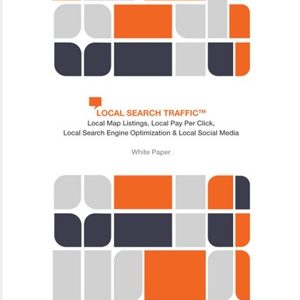
Earlier this month, marketers from around the world gathered at the latest LocalU virtual conference organized by Local University. The symposium featured a wide array of topics, providing local marketing insights from top experts on subjects such as managing fake reviews and SEO forecasting, among others.
Lively discussions ensued on Twitter during each session, with attendees highlighting the speakers’ most practical and actionable advice.
Below are the key takeaways from each speaker and their respective session:
### 1. Write For Customers First and Google Second
#### Charli Hunt, ProofContent
“If you just write content for Google’s algorithm (and not users first), you will be knocked off your top rankings perch.”
– Incorporate local identifiers like neighborhood, county, or city that customers are searching for.
– Create dedicated pages for top FAQs from your customers to avoid repeated inquiries.
– Identify your unique selling points (USPs). Engage with your customers to pinpoint these if uncertain.
### 2. Disputing 1 Illegitimate Review Is Equivalent To 11 Positive Reviews
#### Curtis Boyd, The Transparency Company
– Challenging fake reviews is beneficial as illegitimate reviews can negatively impact ratings and revenue.
– Legitimate negative reviews shouldn’t be removed. Genuine feedback is valuable while fake reviews should be disputed.
– Employers shouldn’t ask employees for company reviews unless it’s on platforms like Glassdoor. Common sources of fake reviews include vendors, business owners, and more.
– Dispute fake reviews using the mobile app rather than desktop. Data-backed claims of fakeness increase success rates significantly.
– For negative review clusters, consult a Google Product Expert via the GBP Help Forum.
### 3. Work Smarter With Practical Google Data Studio Uses
#### Amanda Jordan, RicketyRoo
– Utilize GDS to streamline data review and create easily understandable local SEO reports. Templates are available for quick setup.
– “Use Data Studio to find and categorize keywords, and find new ways to utilize data they’re providing.”
– Numerous free connectors are available with GDS for data integration, like Google Analytics and more.
– Leverage data controls in Data Studio for filtering by date, visitor type, and more.
### 4. Be Strategic With Your Spam Fighting Efforts
#### Joy Hawkins, Sterling Sky
– The level of fake listings varies among industries, with Garage Door Repair and others being heavily affected.
– “87.6% of Garage Door Repair listings were spam. This is incredibly damaging for brands.”
– While spam fighting isn’t a long-term solution, it’s still useful as spam can resurface, and guideline enforcement is inconsistent.
– Merge duplicate listings rather than deleting them, as it can aid in ranking. Reporting is worthwhile in industries with moderate spam.
### 5. We Only Buy From People We Know, Like, and Trust
#### Matthew Hunt, Automation Wolf
– Utilize LinkedIn as a reliable resource, building relations through comments.
– Trust-building requires 7 hours over 11 interactions across 4 locations to develop opportunities.
– Use LinkedIn for short-form discoverable content, lead to longer interactions, and cultivate a community of trust.
– Have a personal profile with a compelling headline that highlights your role and expertise.
### 6. Content Without Data Leads To Poor Outcomes
#### Noah Learner, Two Octobers
– Construct content around client objectives, utilizing refined data to guide topic selection.
– Market profitable aspects of the business and determine major revenue drivers during onboarding.
– It’s crucial to clearly convey content topics to aid Google in search result selections.
– Differentiate well between search trends from Google’s auto-suggest and Trends, the former being personalized.
### 7. Proximity Is Much More Important With The Vicinity Update
#### Yan Gilbert and Colan Nielson, Sterling Sky
– Business proximity significantly affects listing ranking opportunities.
– The update diversifies map pack results, influencing non-location keyword ranks.
– Avoid keyword stuffing in business names as Google balances spammy listings with genuine ones.
### 8. SEO Forecasting Can Help Answer Key Business Questions From Stakeholders
#### Andrew Shotland, Local SEO Guide
– Key questions from stakeholders revolve around benefits, timeline, and ROI.
– Tailor SEO forecasting to accommodate business uniqueness and go beyond personal data for accuracy.
– While perfection isn’t critical, realistic expectations are crucial. Avoid inflating forecasts for approval.
– RICE Score offers a scientific approach: (Reach x Impact x Confidence)/Effort.
### 9. You Have An Obligation To Ensure Your Reviews Are Genuine
#### Mike Blumenthal, Near Media
– Businesses are accountable for review platforms and the conduct of associated SEO and reputation management firms.
– FTC guidelines prohibit review gating and selective display while requiring clear incentives.
– Suppressing reviews is ineffective; websites must align with public reviews, focusing on TOS compliance.
### Summary
The LocalU virtual symposium highlighted impactful updates and content strategies beneficial for physical businesses or listings. For more details, follow the #LocalU discussion on Twitter and engage with the speakers. Stay informed about future events, including LocalU Advanced, set to take place in Denver, CO, on July 28th.



